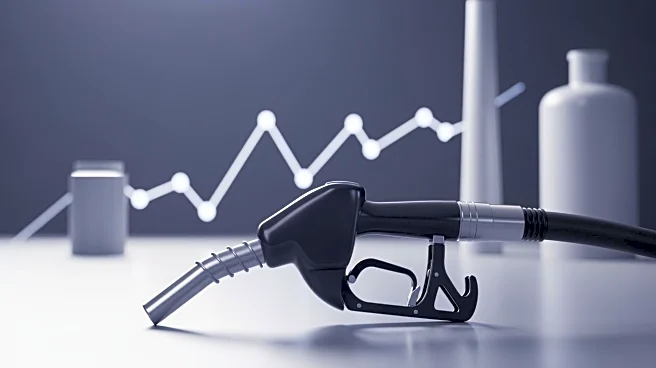What's Happening?
The American Petroleum Institute (API) has called on Congress to reconsider the current E15 legislation, citing significant shifts in the fuel market. API President and CEO Mike Sommers addressed Senate
Majority Leader John Thune, Senate Minority Leader Charles Schumer, Speaker of the House Mike Johnson, and House Minority Leader Hakeem Jeffries in a letter. Sommers highlighted that recent changes in federal biofuel policy, state mandates, and market conditions have disrupted the fuels landscape. He argued that the Nationwide Consumer and Fuel Retailer Choice Act of 2025 does not align with current market realities. The API is advocating for a legislative approach that reflects today's conditions, promoting fuel choice without compromising investment certainty or market stability.
Why It's Important?
The API's call for legislative reevaluation is significant as it underscores the challenges faced by refiners due to evolving federal compliance structures and state mandates. The current E15 legislation, if not updated, could lead to increased costs and uncertainty in the biofuels marketplace. This situation affects consumer choice and the reliability of fuel supply, which are critical for maintaining market stability. The API's stance highlights the need for a balanced approach that supports both consumer interests and industry investment, potentially influencing future policy decisions and market dynamics.
What's Next?
Congress may need to consider the API's recommendations and potentially revise the E15 legislation to better align with current market conditions. This could involve discussions among lawmakers and stakeholders to develop a more comprehensive and balanced approach to biofuel policy. The outcome of these deliberations could impact refiners, consumers, and the broader energy market, shaping the future of fuel choice and supply reliability.
Beyond the Headlines
The API's appeal for legislative change also touches on broader issues of regulatory adaptation and market responsiveness. As the energy sector evolves, the ability of legislation to keep pace with technological and market shifts becomes increasingly important. This situation highlights the ongoing tension between regulatory frameworks and industry innovation, with potential implications for future energy policy and environmental considerations.









